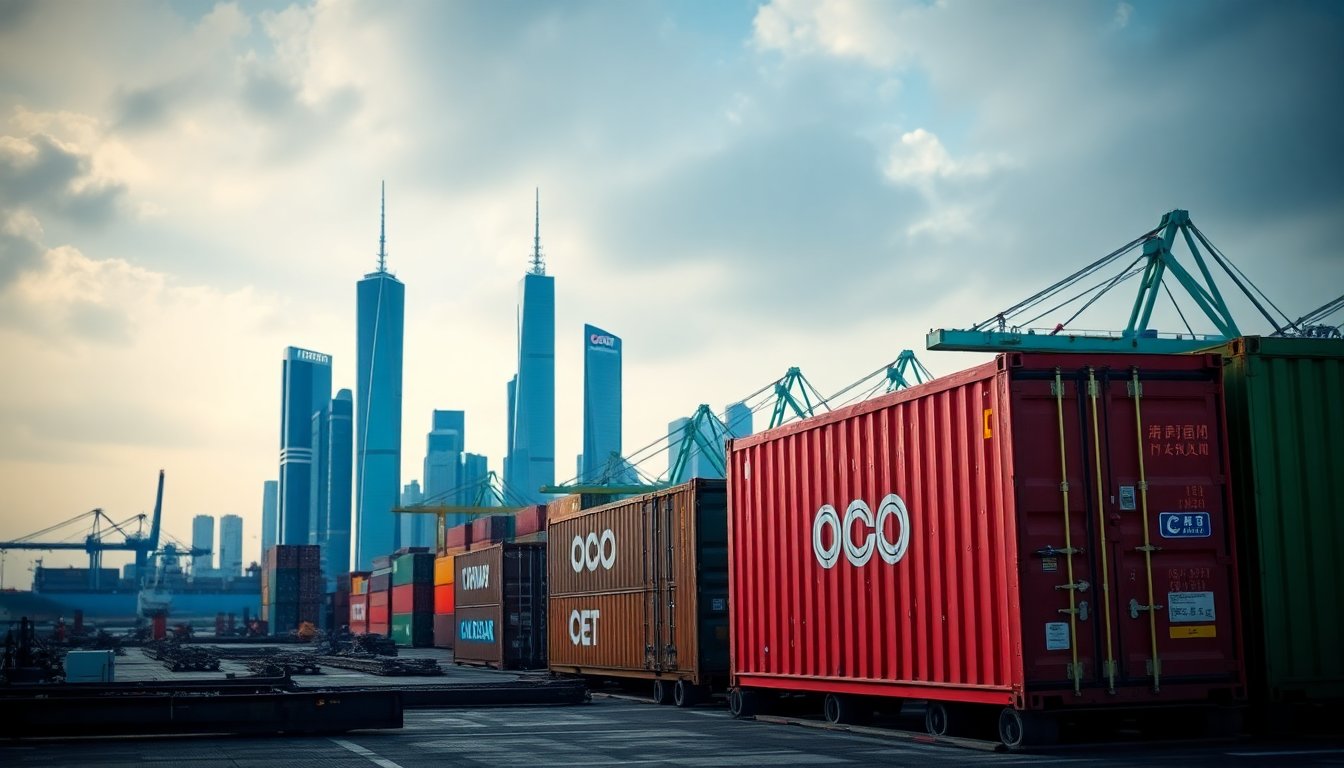Table of Contents
China has reaffirmed its commitment to remain firm amid escalating trade tensions with the United States. This follows President Donald Trump’s recent threat to impose a 100 percent tariff on Chinese imports. The Chinese government has called on the U.S. to pursue negotiations instead of intimidation, emphasizing the significance of this ongoing trade dispute.
The statements were made after U.S. Vice President JD Vance defended Trump’s aggressive stance, warning Beijing against responding with hostility. As tensions escalate, prospects for constructive dialogue between Trump and Chinese President Xi Jinping remain uncertain.
The facts
China’s Ministry of Commerce issued an official statement, declaring, “We do not wish for a tariff war, but we are not intimidated by one.” This marked China’s formal response to Trump’s plan to raise tariffs on Chinese imports by November 1. This decision follows China’s new restrictions on the export of rare earth elements, critical for various technologies.
The current tensions follow a fragile truce that briefly eased the trade conflict, which had previously seen tariffs exceed 100 percent. The exchange of threats raises concerns about the viability of future meetings between the two leaders.
U.S. officials respond to Chinese defiance
Vice President Vance emphasized the administration’s commitment to safeguarding American economic interests, citing China’s significant role in critical supply chains as a national emergency. He stated that Trump’s consideration of stringent tariffs is warranted given the circumstances. Vance noted, “It will be a delicate balancing act, largely dependent on how China chooses to react. Should their response be aggressive, I assure you the U.S. holds more strategic advantages than China.”
He expressed hope that if China acts reasonably, Trump would respond with a rational negotiating approach. Vance remarked, “In the upcoming weeks, we will discern whether China is inclined to provoke a trade war or if they are willing to engage in constructive dialogue. I hope they opt for reason.”
The implications of Trump’s tariff threats
Since taking office, President Trump has raised tariffs on numerous foreign goods to secure concessions from various trading partners. China has demonstrated resilience, utilizing its economic influence against U.S. pressure. The Chinese Ministry of Commerce criticized the frequent reliance on high tariffs, advocating for dialogue to resolve disputes.
The ministry warned that if the U.S. continues down this path, China would take decisive measures to protect its legitimate rights and interests. In addition to the proposed 100 percent tariff, Trump has threatened to impose export controls on what he describes as ‘critical software,’ although details remain unspecified.
Rare earths: A contentious issue in trade negotiations
Both nations have accused each other of undermining the truce with new trade restrictions. Trump expressed frustration via social media, alleging that China is increasingly hostile by limiting access to essential rare earth metals. The Chinese Commerce Ministry countered, noting that the U.S. has expanded export control measures against Chinese companies in recent weeks.
Regarding rare earths, China announced that export licenses would only be granted for legitimate civilian purposes, acknowledging the minerals’ military applications. New regulations require foreign companies to obtain approval from the Chinese government to export any products containing rare earths sourced from China, regardless of production location.
The statements were made after U.S. Vice President JD Vance defended Trump’s aggressive stance, warning Beijing against responding with hostility. As tensions escalate, prospects for constructive dialogue between Trump and Chinese President Xi Jinping remain uncertain.0
Future trade relations depend on cooperation
The statements were made after U.S. Vice President JD Vance defended Trump’s aggressive stance, warning Beijing against responding with hostility. As tensions escalate, prospects for constructive dialogue between Trump and Chinese President Xi Jinping remain uncertain.1
The statements were made after U.S. Vice President JD Vance defended Trump’s aggressive stance, warning Beijing against responding with hostility. As tensions escalate, prospects for constructive dialogue between Trump and Chinese President Xi Jinping remain uncertain.2


